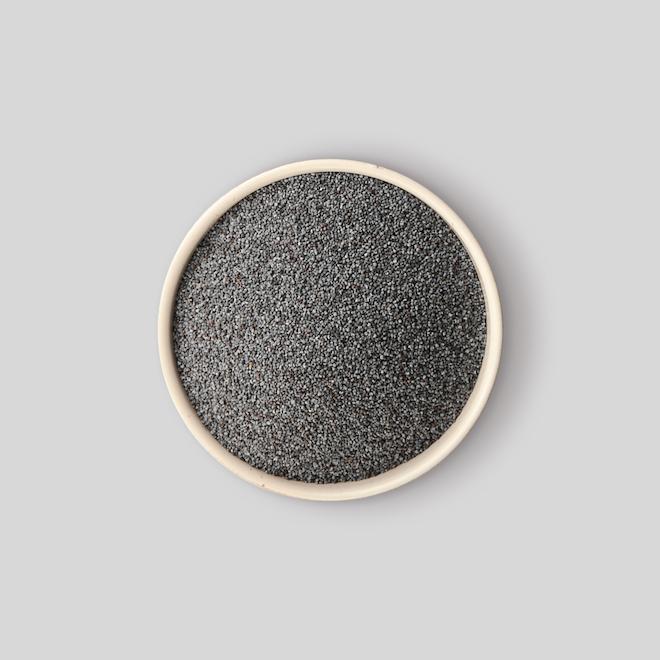Poppy Seeds




Poppy seeds are tiny, kidney-shaped seeds obtained from the opium poppy (Papaver somniferum). These seeds are widely used in various culinary applications and have a long history of cultural significance. Poppy seeds have been used since the Bronze Age but due to their association with opium, a powerful narcotic obtained from the poppy plant, they are banned in several countries. While poppy seeds themselves contain only trace amounts of opium, some countries have chosen to ban them entirely as a precaution.
When buying poppy seeds, choose hulled or unhulled depending on the purpose. Hulled seeds, with their smooth texture and mild nutty flavor, are perfect for baking, sprinkling on yogurt, or adding to salad dressings. Unhulled seeds, with their bolder flavor and crunchy texture, are ideal for breads, granola, and dips.
Poppy seeds should be stored in an airtight container in a dark and cool place for up to 6 months. Avoid using big containers with significant empty space, as air exposure can accelerate spoilage.
Leftover poppy seeds can be used in a variety of ways - as a body scrub, candle decoration, sand therapy, massage when mixed with essential oils and even as a natural air freshener.
The use of poppy seeds in the world is so varied that while some people consider them as a food item only, in certain cultures they are associated with death and mourning and used as part of funeral rituals.
Nowadays, poppy seeds most commonly used come in 3 different colors - white, gray and black. However, there are 2 more colors - blue and dark brown, both very rare to find, so rare that a few years ago a single gram of blue poppy seeds got sold for $1,000 at a spice auction.
Poppy seeds have a natural calming effect and consuming them with warm milk can be a relaxing ritual that helps you unwind before bed. Because of their properties, poppy seeds can also be used as a pain relief in some cases.
Poppy seeds are packed with various essential nutrients, including calcium, phosphorus, iron, manganese, fiber and Omega-6 fatty acids. They contain antioxidants like phenolic acids, which fight free radicals, potentially reducing the risk of chronic diseases like cancer and heart disease.
Poppy seeds have traditionally been used for pain relief, and some studies suggest they may possess mild analgesic properties. Poppy seeds naturally contain trace amounts of opiates, but the levels are too low to have any psychoactive effects.
Corrections or improvements? Email us at
content@sidechef.com